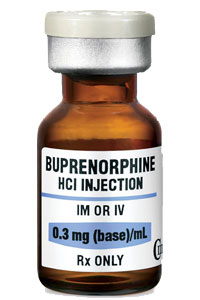20 Mar 2013
How You Can Support Someone With an Addiction
If you’ve had it up to here with nightly bouts of drunkenness from your spouse or loved one, or you have a good friend who is trying to quit but having a difficult time, you know that the road ahead isn’t an easy one. You may want to support someone who is genuinely interested in getting clean and sober, but may not quite know how to go about it.
Read More
19 Mar 2013
Amphetamine Addiction
Although commonly referred to as amphetamines, in the plural, this is really just one compound called amphetamine. There are other drugs with amphetamine in their name, such as methamphetamine and dextroamphetamine. These are related, and may be referred to collectively as amphetamines.
Read More
18 Mar 2013
Chemical and Emotional Dependence
Dependency is another word for addiction. If you are dependent on alcohol, for instance, you are addicted to that substance and you are an alcoholic. What most of us think of when we give any consideration to the disease that is addiction, we are thinking of chemical dependency. This is the inability to stop using a substance because of chemical interactions between the drug and the body. Substance abuse and addiction are not that simple, however. If they were, we might already have a cure. Psychological or emotional dependence adds another, in some ways more complex, aspect to addiction.
Read More
17 Mar 2013
Buprenorphine Treatment for Opioid Addiction
 Buprenorphine is a relatively weak opioid medication that doctors sometimes use to treat addictions to stronger legal and illegal opioids such as oxycodone (OxyContin), codeine, and heroin. Like other opioids, buprenorphine achieves its effects in the body by attaching to specialized sites on nerve cells (neurons) throughout the body called opioid receptors. However, it produces much smaller mind-altering effects than commonly abused opioids, and people recovering from addictions to those drugs can use buprenorphine to gradually transition through the withdrawal process, rather than going through severe withdrawal symptoms. In order to reduce any risks for inappropriate use, some forms of buprenorphine come combined with another drug called naloxone.
Buprenorphine is a relatively weak opioid medication that doctors sometimes use to treat addictions to stronger legal and illegal opioids such as oxycodone (OxyContin), codeine, and heroin. Like other opioids, buprenorphine achieves its effects in the body by attaching to specialized sites on nerve cells (neurons) throughout the body called opioid receptors. However, it produces much smaller mind-altering effects than commonly abused opioids, and people recovering from addictions to those drugs can use buprenorphine to gradually transition through the withdrawal process, rather than going through severe withdrawal symptoms. In order to reduce any risks for inappropriate use, some forms of buprenorphine come combined with another drug called naloxone.
Read More
16 Mar 2013
Austin Drug Rehab and Treatment
Drug use in Austin, Texas and around the United States is a rising problem. More and more people, especially young people, are experimenting with drugs, in particular prescription painkillers and marijuana. Often those who are using these drugs assume that they are not dangerous in the way that illegal narcotics like cocaine or heroin are. They are mistaken, however, and using these substances can lead to health problems, addiction, and even overdose and death in extreme situations. Although abuse and addiction are on the rise, there are ways to get help. If you are living in Austin with a drug problem, there are places you can go and professionals to whom you can turn to get help coming clean.
Read More
15 Mar 2013
Naltrexone Treatment for Amphetamine Addiction
Naltrexone is a medication originally designed to help recovering opioid addicts maintain drug abstinence during treatment. Substance abuse specialists and researchers eventually discovered that use of the medication can also help reduce alcohol cravings in recovering alcoholics. According to the results of recent studies, naltrexone also holds promise as a potential treatment for people recovering from amphetamine addiction. This news has significant real-world importance, because doctors currently have no medication options to offer to their amphetamine-addicted patients. Discovery of such a medication could potentially help vast numbers of people throughout the world successfully break the cycle of active amphetamine abuse.
Read More
14 Mar 2013
Up-to-Date Information on Synthetic Cathinones
Synthetic cathinones are a group of amphetamine-like chemicals based on cathinone, a mind-altering substance found in the plant species Catha edulis. In recent years, these chemicals have entered mainstream conversation as the active ingredients in the euphemistically named, illegal drugs called “bath salts.” In addition, certain legal prescription drugs -including the antidepressant, anti-smoking medication buproprion (Wellbutrin, Zyban) – also belong to the synthetic cathinone family. Because of the relative newness of “bath salts,” no one knows for sure what types of damage long-term abuse of most synthetic cathinones will produce in the body. However, doctors and researchers have documented many of the potential consequences of short-term abuse of these drugs.
Read More
13 Mar 2013
Drug Abuse and Brain Damage (Encephalopathy)
Encephalopathy is a term that doctors and researchers use to describe various types of brain damage, malfunction, or disease that trigger some form of mental impairment. Some people develop relatively mild forms of encephalopathy, such as slight deficits in memory or thought processing, while others develop severe or catastrophic problems that can lead to such outcomes as dementia or death. A number of different legal and illegal drugs can trigger the onset of mild or severe brain impairments when abused. In some cases, the effects of drug abuse-related encephalopathy can be at least partially reversed; in other cases they produce permanent brain deficits.


